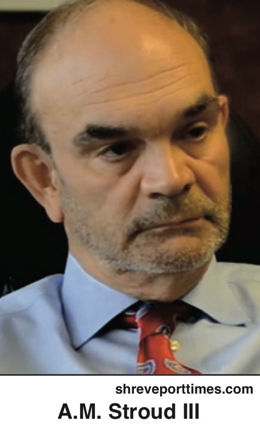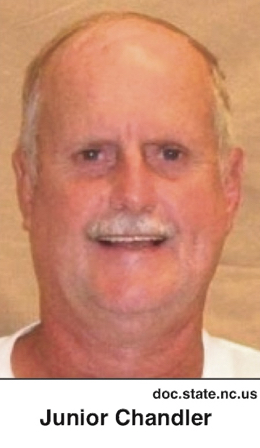Rascals case in brief
In the beginning, in 1989, more than 90 children at the Little Rascals Day Care Center in Edenton, North Carolina, accused a total of 20 adults with 429 instances of sexual abuse over a three-year period. It may have all begun with one parent’s complaint about punishment given her child.
Among the alleged perpetrators: the sheriff and mayor. But prosecutors would charge only Robin Byrum, Darlene Harris, Elizabeth “Betsy” Kelly, Robert “Bob” Kelly, Willard Scott Privott, Shelley Stone and Dawn Wilson – the Edenton 7.
Along with sodomy and beatings, allegations included a baby killed with a handgun, a child being hung upside down from a tree and being set on fire and countless other fantastic incidents involving spaceships, hot air balloons, pirate ships and trained sharks.
By the time prosecutors dropped the last charges in 1997, Little Rascals had become North Carolina’s longest and most costly criminal trial. Prosecutors kept defendants jailed in hopes at least one would turn against their supposed co-conspirators. Remarkably, none did. Another shameful record: Five defendants had to wait longer to face their accusers in court than anyone else in North Carolina history.
Between 1991 and 1997, Ofra Bikel produced three extraordinary episodes on the Little Rascals case for the PBS series “Frontline.” Although “Innocence Lost” did not deter prosecutors, it exposed their tactics and fostered nationwide skepticism and dismay.
With each passing year, the absurdity of the Little Rascals charges has become more obvious. But no admission of error has ever come from prosecutors, police, interviewers or parents. This site is devoted to the issues raised by this case.
On Facebook
Click for earlier Facebook posts archived on this site
Click to go to
Today’s random selection from the Little Rascals Day Care archives….
Click for earlier Facebook posts archived on this site
Click to go to
Today’s random selection from the Little Rascals Day Care archives….
Rare words of prosecutorial remorse
 July 5, 2015
July 5, 2015
“In March, A. M. Stroud III, lead prosecutor at trial, wrote a remorseful article in The Shreveport Times, declaring, ‘Glenn Ford was an innocent man,’ taking responsibility for a rush to judgment and arguing for the abolition of the death penalty.
“ ‘I apologize to Glenn Ford for all the misery I have caused him and his family,’ Mr. Stroud wrote. ‘I apologize to the family of (the murder victim) for giving them the false hope of some closure. I apologize to the members of the jury for not having all of the story that should have been disclosed to them. I apologize to the court in not having been more diligent in my duty to ensure that proper disclosures of any exculpatory evidence had been provided to the defense.’
“He concluded: ‘I end with the hope that providence will have more mercy for me than I showed Glenn Ford. But I am also sobered by the realization that I certainly am not deserving of it.’ ”
– From “Glenn Ford, Spared Death Row, Dies at 65” by Bruce Weber in the New York Times (July 2)
By the time Mr. Ford was exonerated and released in 2014, he had served 29 years in Louisiana’s Angola prison. His freedom was short-lived: In less than 16 months he would be dead from lung cancer.
Prosecutor Stroud deserves credit for his humble and agonized apology, however late. His words could just as truthfully have come from the mouths of H.P. Williams, Bill Hart and Nancy Lamb – but of course they haven’t.
Betsy Kelly wouldn’t succumb to state’s torture
 July 16, 2012
July 16, 2012
“Elizabeth Kelly was denied parole Friday, three months after pleading no contest to charges of sexually abusing children at her Edenton day care.
“Mrs. Kelly, sentenced to seven years, was eligible for parole upon entering prison because she had already served more than two years while awaiting trial.
“Prosecutor Bill Hart said opposition to Mrs. Kelly’s release was heightened by her statements of innocence after entering her plea.
“‘From my work dealing with sex offenders there is no way you can treat a sex offender and restore them to the community until that person admits the wrongness of her actions and takes responsibility….’”
– From the Associated Press, April 16, 1994
From the beginning, the prosecution never missed a chance to tighten the thumbscrews on Betsy Kelly: Plead guilty, implicate your husband or suffer grave consequences. Although she eventually took a plea bargain, she never accommodated Bill Hart’s pious insistence that she admit “the wrongness of her actions.”
In October 1989, about six weeks after her arrest, a hearing had been held in Raleigh on whether Kelly should be forced to move from a mental health unit into Dorm C at women’s prison.
Recalls Faye Sultan, a Charlotte forensic psychologist who testified on her behalf: “She had been found guilty of nothing at that point, but she was being housed in the most isolated, restrictive facility in the prison, where Death Row and disciplinary inmates were housed. Seems a bit unfair, no?”
Sultan testified that Kelly’s “psychological condition is rapidly deteriorating, and in fact she is on the edge of becoming psychotic.”
Why would the state insist on moving a pretrial “safekeeping” defendant to such a hostile environment? “The reason was to pressure Betsy,” says Joe Cheshire, her lawyer. “They didn’t know her very well, did they?”
A funny thing happened on the way to publication
March 7, 2014
Second of three posts
After our lengthy email exchange I took up editor Jon Conte on his offer to consider an expanded letter challenging the Journal of Interpersonal Violence’s past support of the “satanic ritual abuse” moral panic.
This is what I submitted on Oct. 25, 2013:
To the editor:
In December 1989 the Journal of Interpersonal Violence published “Stress Responses of Children to Sexual Abuse and Ritualistic Abuse in Day Care Centers” by Susan J. Kelley. In December 1990 it published “Ritualistic Child Abuse in a Neighborhood Setting” by Barbara Snow and Teena Sorensen. Both these articles endorsed, promoted and attempted to substantiate a concept that subsequent research has proven to be a quintessential moral panic. Today no respected social scientist will argue that satanic (or sadistic) ritual abuse ever existed in the nation’s day cares.
These articles in JIV, however, were unequivocally confident that it not only existed but also was widespread. From Kelley’s synopsis: “The purpose of this study was to examine the effects of sexual abuse and ritualistic abuse of children in day care settings. The sample was composed of 134 children; 67 children who were sexually abused and ritually abused in day care centers were compared on the Child Behavior Checklist with a carefully matched group of 67 nonabused children. Findings indicated that sexually abused children had significantly more behavior problems than did the nonabused children. Sexual abuse involving ritualistic abuse was associated with increased impact as well as increased severity in the extent of the sexual, physical, and psychological abuse the children experienced.”
Snow and Sorensen criticized “attempts to discredit victims and therapists” and seemed unaware that they were exposing the corruption of those therapists’ interviewing techniques when they wrote: “Disclosures were difficult and progressed slowly. The majority of children showed little symptomology at initial referral with significant increases during the disclosure process.”
The Little Rascals and McMartin cases were but two manifestations of this moral panic of the 1980s and early 1990s. Dozens of less publicized prosecutions occurred across North America and as far away as New Zealand and Germany. The extensive literature illuminating the day care moral panic includes “Satanic Panic: The Creation of a Contemporary Legend” by Jeffrey S. Victor, “Sex Panic and the Punitive State” by Roger N. Lancaster, “Moral Panic: Changing Concepts of the Child Molester in Modern America” by Philip Jenkins, “The Satanism Scare” by David G. Bromley, Joel Best and James T. Richardson, “Moral Panics: The Social Construction of Deviance ” by Erich Goode and Nachman Ben-Yehuda, “The Day Care Ritual Abuse Moral Panic” by Mary De Young and the latest edition of “Folk Devils and Moral Panics” by Stanley Cohen – who coined the term “moral panic” in 1972.
The Wall Street Journal’s Dorothy Rabinowitz won a Pulitzer Prize for her coverage of the Wee Care Day Nursery case in 1985. Among law enforcement reports debunking ritual abuse allegations the best known is “Investigator’s Guide to Allegations of ‘Ritual’ Child Abuse” by Kenneth Lanning, the FBI agent in the Behavioral Science Unit assigned to examine these cases. Similar reports have been issued in countries such as England (“Extent and Nature of Organised and Ritual Abuse” byJ. S. La Fontaine), the Netherlands (“Report of the Ritual Abuse Workgroup”) and Australia (“Royal Commission into the New South Wales Police Service”).
Eventually the convictions of most of the day care providers in the United States were overturned. Playing a major part in alerting appellate courts to the suggestibility of child witnesses was an amicus brief filed in the Wee Care case by pioneer researchers Stephen Ceci and Maggie Bruck.
Before the fever broke, however, untold harm was done to defendants, families and child-witnesses. In the words of sociologist Mary De Young:
“Innocent people have been accused and convicted; the autobiographies of children have been usurped (and some children, now adults, have completely retracted their allegations); professional reputations have been destroyed (and some of the loudest proponents of the idea of ritual abuse have since retracted their claims); tens of millions of dollars were wasted on investigations and trials; it distracted attention, time, money and energy from ‘real’ cases of sexual abuse and from the fathers, brothers and other family members who most likely were the perpetrators; it made quality day care harder to find and drove out male providers who could have been valuable role models to children, especially boys; it eroticized abuse by focusing on rituals and masked and hooded perpetrators; it added nothing – absolutely nothing – to a clinical or scientific understanding of the traumatic effects of abuse because the trauma children experienced in these cases was iatrogenic, i.e., caused by investigators, interviewers, prosecutors and hysterical parents; it broke up families; and even dropped property values and interfered with commerce; and it introduced distrust, cynicism and incivility into our lives and into legitimate work on helping abused kids.”
The Journal of Interpersonal Violence should not allow these misguided articles from 1989 and 1990 to stand as its last word on claims of day-care ritual abuse.
Lew Powell
Charlotte, North Carolina
Alas, publication in the JIV now seems unlikely. Dr. Conte has not responded to my follow-up emails and phone messages over the past four months. Why might that be?
Next: I’ll consider some possible answers.
Chandler’s sentence designed to lock him up forever
 Nov. 8, 2015
Nov. 8, 2015
“The latest obstacle to Gerald Amirault’s freedom came without fanfare. A three-member panel of the Massachusetts Department of Corrections has now decided that, since the prisoner has refused participation in treatment programs for sex offenders, he was considered to be ‘in denial.’ Permission for him to appear before the Board that could grant early parole would therefore be denied.”
– From “How to Extort a Confession” in the Wall Street Journal (April 22, 2002)
Steadfast in his supposed “denial,” Amirault wouldn’t be paroled until 2004 – 18 years into his 40-year sentence.
Compared with Junior Chandler, however, he was lucky. Chandler’s two consecutive life sentences have made him ineligible for parole. For a brief moment during his long and maddening appeals process, in 2008, it seemed those life sentences would be made concurrent – thus qualifying him for parole consideration. But a switch in judges, orchestrated by the attorney general’s office, vaporized that prospect.
A footnote: The North Carolina Department of Correction has its own Sexual Offender Accountability and Responsibility program. “Through psycho-educational modules, behavior techniques and empathy training,” its website says, “S.O.A.R. participants learn that sexually abusive behavior is both controllable and manageable.”
Junior Chandler recalls having been invited to participate, but …. “They said I had to admit I was guilty. I told them I couldn’t do that, because I hadn’t done anything…. What would you do?”











0 CommentsComment on Facebook